About Defining Wellness Centers – Inpatient Drug & Alcohol Rehab
Every client will begin treatment with a medical assessment and undergo medical detoxification. When you’re well enough, the staff will learn more about your individual history and work with you to develop a treatment plan. The facility is staffed with board certified psychiatrists and licensed therapists. Along with individual and group sessions, patients will engage in educational activities and workshops that will help improve their overall wellness.
I like that they offer a variety of therapeutic modalities to help clients in their recovery journey. Some of the techniques used include music assisted therapy, expressive arts therapy and cognitive behavioral therapy. Music assisted therapy allows you to write songs with a professional musician who will teach you how to heal through music. At the Spiritual Center on campus, you can choose to participate in different spiritual based healing experiences such as sweat lodges, drumming circles and medicine wheels. You’ll also have access to a fitness center where you can exercise with a personal trainer, take CrossFit classes, and do other activities to take care of your physical needs.
Facility Overview
Latest Reviews
Rehab Score
Gallery


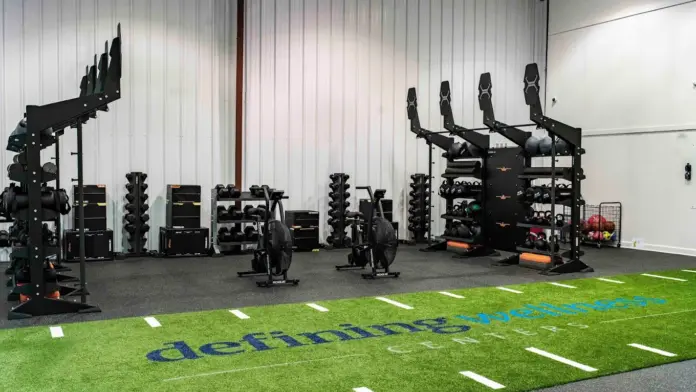
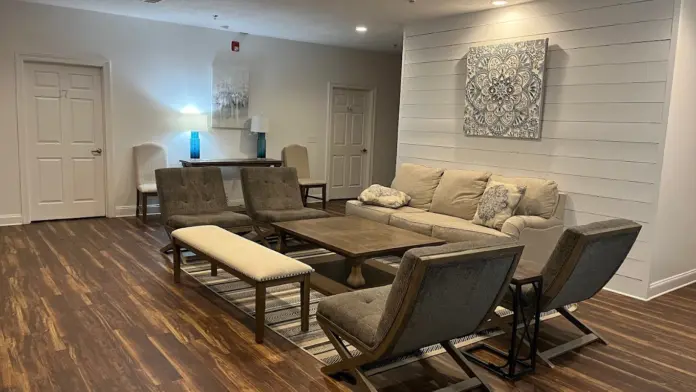
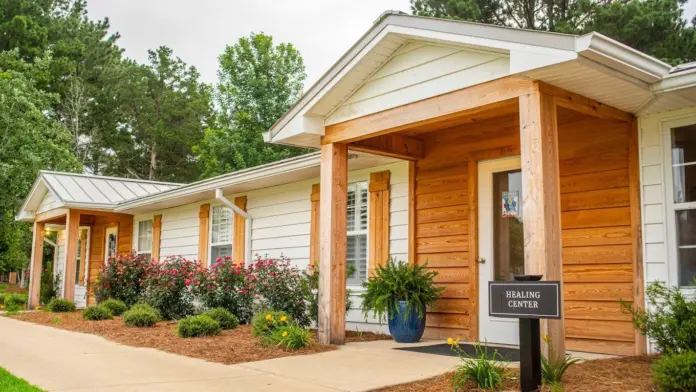
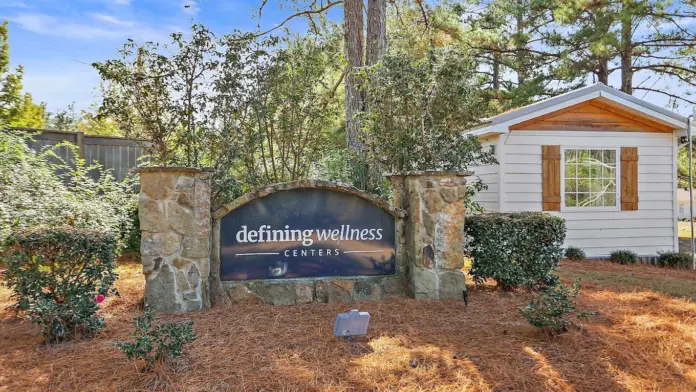
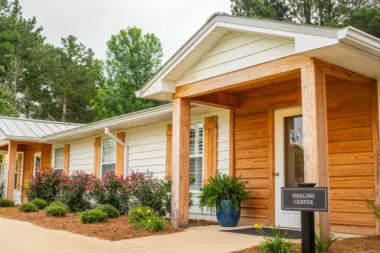

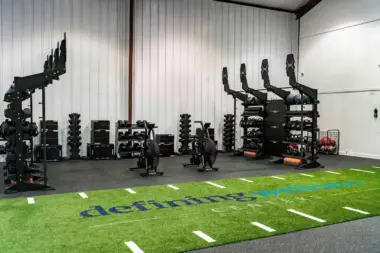
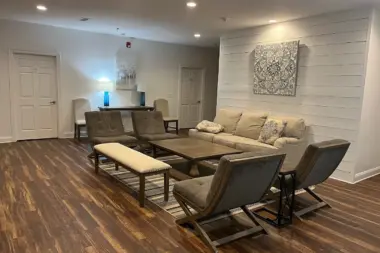


Accepted Insurance
Other Forms of Payment
Self-pay involves paying for treatment out of your own pocket. You can use savings or credit, get a personal loan, or receive help from family and friends to fund your treatment. If you don't have insurance or your insurance plan doesn't cover a specific program, self-pay can help ensure you still get the care you need.
Private insurance refers to any kind of healthcare coverage that isn't from the state or federal government. This includes individual and family plans offered by an employer or purchased from the Insurance Marketplace. Every plan will have different requirements and out of pocket costs so be sure to get the full details before you start treatment.
Military members, veterans, and eligible dependents have access to specific insurance programs that help them get the care they need. TRICARE and VA insurance can help you access low cost or no cost addiction and mental health treatment. Programs that accept military insurance often have targeted treatment focused on the unique challenges military members, veterans, and their families face.
Private insurance refers to any kind of healthcare coverage that isn't from the state or federal government. This includes individual and family plans offered by an employer or purchased from the Insurance Marketplace. Every plan will have different requirements and out of pocket costs so be sure to get the full details before you start treatment.
Medicaid is a state based program that helps lower-income individuals and families pay for healthcare. Medicaid covers addiction treatment so those enrolled can use their coverage to pay for rehab. When a program accepts Medicaid the client often pays very little or nothing out of their own pocket.
Medicare is a federal program that provides health insurance for those 65 and older. It also serves people under 65 with chronic and disabling health challenges. To use Medicare for addiction treatment you need to find a program that accepts Medicare and is in network with your plan. Out of pocket costs and preauthorization requirements vary, so always check with your provider.
Addiction Treatments
Levels of Care
Clients stepping down from inpatient care or who prefer to remain at home while receiving intensive treatment may choose to enroll in an outpatient rehab. Outpatient day treatment, partial hospitalization (PHP), and intensive outpatient programs (IOP) are designed for clients requiring more robust supervision and daily treatment. Standard outpatient services enable clients to attend addiction counseling and recovery education throughout the week, with many centers offering weekend, night, and evening sessions to accommodate clients' work and family schedules.
Residential treatment programs are those that offer housing and meals in addition to substance abuse treatment. Rehab facilities that offer residential treatment allow patients to focus solely on recovery, in an environment totally separate from their lives. Some rehab centers specialize in short-term residential treatment (a few days to a week or two), while others solely provide treatment on a long-term basis (several weeks to months). Some offer both, and tailor treatment to the patient's individual requirements.
Clients engaged in a rehab aftercare program approach recovery as a life-long process. Drug rehab aftercare encompasses myriad services designed to promote clients' continued sobriety as they reintegrate into their home, workplace, and community. Clients generally partner with their case managers and recovery team to define their recovery needs and goals and to identify and access the services they need to promote them. These often include peer coaching, career counseling, and 12 step program induction.
Recommended as a flexible and intensive addiction treatment option, a partial hospitalization program (PHP) is often used as an alternative to inpatient rehab. With daily sessions typically lasting up to six hours for five days a week, PHP treatment provides evidence-based therapies and medical care while allowing you to return home every evening. The length of PHP treatment varies based on your needs, but it averages 90 days.
During early phases of recovery, 24-hour clinical care in Mississippi provides several advantages that can improve recovery outcomes. First, medical staff can prescribe medications to manage withdrawal. Second, staff are available 24/7 to address mental health issues that arise. Third, any other medical issues can be addressed, such as illness or medication management. Lastly, this intensive level of treatment can provide nutritional care to further improve the individual's health.
Under the 24/7 care of medical professionals, a medically supervised detox helps to ensure your maximum safety and comfort while ridding the body of all addictive substances. In many cases, your medical team will administer various medications (like Suboxone or methadone) to help alleviate the symptoms of withdrawal. After you are fully detoxed off drugs and alcohol, you'll likely transition to the next stage of your recovery process.
12-step programs are addiction recovery models based on Alcoholics Anonymous (AA). A number of substance abuse programs (including some drug and alcohol rehab centers) use the 12 steps as a basis for treatment. Beginning steps involve admitting powerlessness over the addiction and creating a spiritual basis for recovery. Middle steps including making direct amends to those who've been hurt by the addiction, and the final step is to assist others in addiction recovery in the same way. 12-Step offshoots including Narcotics Anonymous (NA), Cocaine Anonymous (CA), Dual Recovery Anonymous (DRA), Sex and Love Addicts Anonymous (SLAA) and Gamblers Anonymous (GA).
Clients in an intensive outpatient program (IOP) require substantive support as they prepare to transition into standard outpatient (OP) care or community-based recovery programs, such as AA. Most IOP clients are in early recovery or are at an elevated relapse risk. Intensive outpatient treatment generally involves multiple, extended sessions weekly. Many programs require clients to participate in a minimum of nine therapeutic hours weekly. The most common treatment modalities include psychotherapy, recovery education, and medication assisted treatment.
Treatments
A combined mental health and substance abuse rehab has the staff and resources available to handle individuals with both mental health and substance abuse issues. It can be challenging to determine where a specific symptom stems from (a mental health issue or an issue related to substance abuse), so mental health and substance abuse professionals are helpful in detangling symptoms and keeping treatment on track.
When a person has alcohol use disorder, often referred to as alcoholism, they build up a physical tolerance to alcohol, and they experience withdrawal if they stop drinking. Due to physical and psychological dependence, they may be unable to stop drinking on their own. Alcohol rehab in Mississippi can help. Treatment options include detox, cognitive behavioral therapy, mutual help groups, and pharmacological treatments.
In Mississippi, substance abuse treatment is available in inpatient and outpatient rehabs. These facilities can treat a range of substance use disorders and even co-occurring mental health challenges, in dual-diagnosis treatment programs. These programs involve an assessment with an addiction expert, personalized treatment plan, and evidence-based therapies such as cognitive-behavioral therapy (CBT) or dialectical behavior therapy (DBT). By addressing the underlying issues contributing to addiction, you'll leave treatment with the skills to sustain your recovery.
In Mississippi, dual-diagnosis addiction treatment programs have the expertise to treat individuals with co-occurring substance use disorders and mental health conditions. Their inpatient and outpatient rehab programs offer individual and group therapy, medication-assisted treatment, cognitive behavioral therapy, or dialectical behavioral therapy, and other trauma-informed care, and skills training to address both disorders and equip you with the skills to maintain your recovery.
Programs
Adult rehab programs include therapies tailored to each client's specific needs, goals, and recovery progress. They are tailored to the specific challenges adult clients may face, including family and work pressures and commitments. From inpatient and residential treatment to various levels of outpatient services, there are many options available. Some facilities also help adults work through co-occurring conditions, like anxiety, that can accompany addiction.
Recovery is most successful when clients feel accepted and validated by their peers and treatment providers. Facilities that offer LGBTQ-inclusive programming are committed to creating a safe space where everyone can grow and recover without fear of judgment or discrimination. They will have dedicated policies in place to create a safe and supportive environment that fosters free expression.
Young adulthood can be an exciting, yet difficult, time of transition. Individuals in their late teens to mid-20s face unique stressors related to school, jobs, families, and social circles, which can lead to a rise in substance use. Rehab centers with dedicated young adult programs will include activities and amenities that cater to this age group, with an emphasis on specialized counseling, peer socialization, and ongoing aftercare.
Serving in the military is both mentally and physically challenging, and can result in trauma that persists even after combat ends. Military programs are tailored to the specific and often complex needs of active duty personnel, veterans, and military families. Clients often access these programs through the U.S. Department of Veterans Affairs (VA).
Clinical Services
EMDR is a therapeutic modality originally developed to help process trauma. In an EMDR session, a patient is prompted to undergo eye movements that mimic those of REM sleep. This is accomplished by watching a therapist's finger move back and forth across, or following a bar of light. The goal is repetitive sets of eye movements that help the brain reprocess memory, which can significantly reduce the intensity of remembered traumatic incidents. Associated memories can heal simultaneously, leaving patients significantly calmer, more stable, and more emotionally relaxed.
Creative arts therapy allows you to express the emotions you can't explain with words. You use an art form, such as dance, music, painting, or sculpting, to talk through and share your thoughts and feelings.
If you participate in cognitive behavioral therapy in Mississippi, you can expect to receive homework exercises that allow you to practice the skills you discuss during your sessions. You'll learn how to develop coping skills and change your thinking and behavior so you can break free from addiction.
Treatment that includes dialectical behavior therapy in Mississippi gives you specific tools for managing challenging situations. You'll learn how to identify and change unhealthy thought patterns. You'll also attend group training sessions where you can start applying the skills you're learning in treatment.
Counselors who apply motivational interviewing take on the roles of listening and reflecting. Their goal is to facilitate conversation about change and commitment to change. They offer support and seek to empower the client to make changes in their life.
For individuals in Mississippi who have difficulty with talk therapy, experiential therapy can be a good method for treating substance use disorder. Instead of trying to talk through issues, clients participate in interactive interventions, such as art, music, culinary arts, martial arts, or equine therapy.
Family therapy involves group sessions in which all members of the family unit are together to discuss how addiction has affected them collectively and individually. Experienced therapists help guide families to develop strategies that protect their well being and emotional health while supporting their loved one's efforts to recover.
Evidence based therapies offered in group therapy settings in Mississippi ensure that you are accountable to your peers. This encourages everyone to stay committed to their recovery and fosters a sense of community with other participants. You learn essential coping skills that help you navigate challenges within the community and achieve sustainable recovery.
The goal of trauma therapy is to help you heal from the effects of witnessing or experiencing a traumatic event. You are provided support to process those traumatic memories and then develop coping strategies to improve your emotional resilience and ability to cope in society.
Amenities
-
Private Setting
-
Private Rooms
-
Recreation Room
-
Volleyball Court
-
Meditation Room
Staff & Accreditations
Staff

Drew Rothermel
CEO
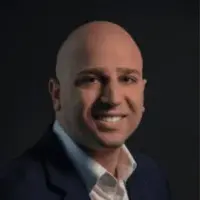
Sean Mintz
CFO

Saurabh Bhardwaj
MD
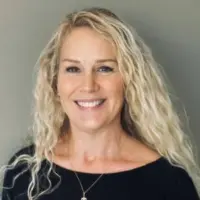
Heather Kent
ED

David Williams
HRD
Accreditations

LegitScript has reviewed Defining Wellness Centers – Inpatient Drug & Alcohol Rehab as part of their certification program, and has determined that it meets the LegitScript standards for legality, safety and transparency.
LegitScript verified in August 2020

The National Association of Addiction Treatment Providers (NAATP) is a professional association that represents organizations in the field of addiction services. Founded in 1978, NAATP's mission is to advance addiction services and ensure that high-quality addiction treatment is available and accessible.
NAATP Member: Yes

The Joint Commission, formerly known as JCAHO, is a nonprofit organization that accredits rehab organizations and programs. Founded in 1951, the Joint Commision's mission is to improve the quality of patient care and demonstrating the quality of patient care.
Joint Commission Accreditation: Yes

The Commission on Accreditation of Rehabilitation Facilities (CARF) is a non-profit organization that specifically accredits rehab organizations. Founded in 1966, CARF's, mission is to help service providers like rehab facilities maintain high standards of care.
CARF Accreditation: Yes

The Substance Abuse and Mental Health Services Administration (SAMHSA) is a branch of the U.S. Department of Health and Human Services. Established in 1992 by congress, SAMHSA's mission is to reduce the impact of substance abuse and mental illness on American's communities.
SAMHSA Listed: Yes
Contact Information
3949 MS-43
Brandon, MS 39047






